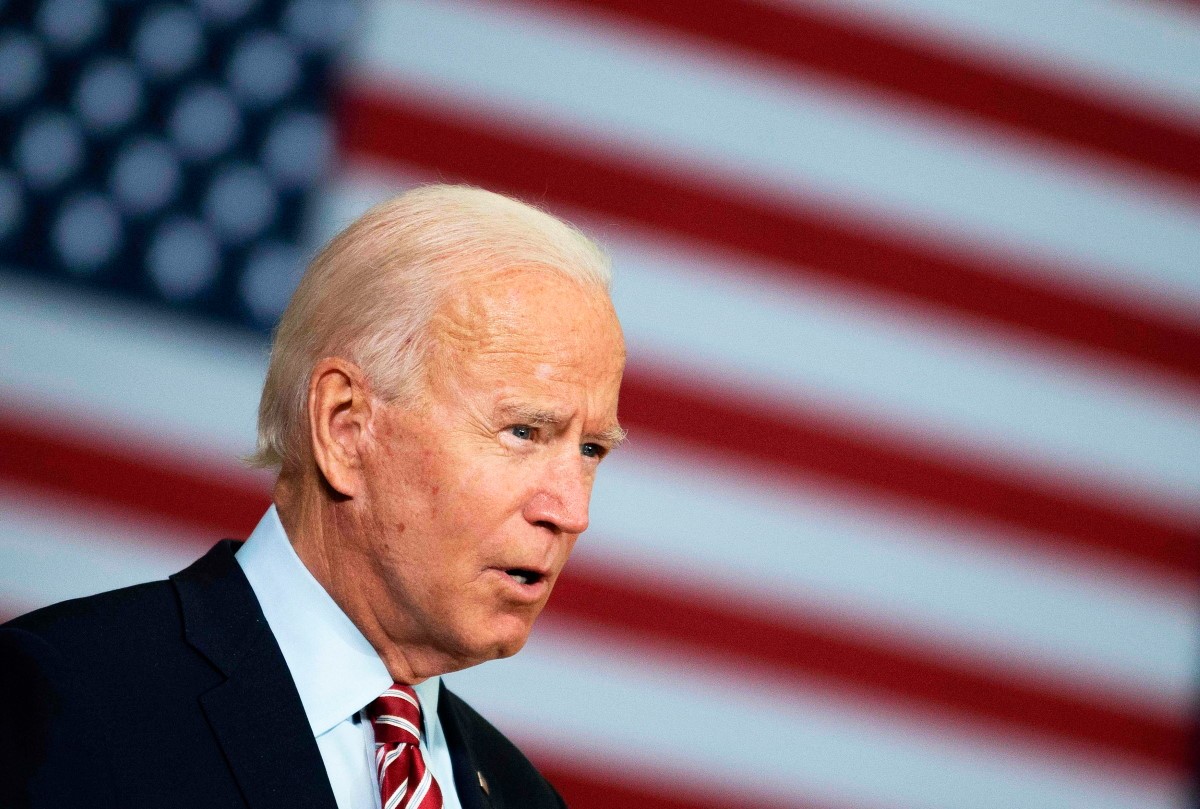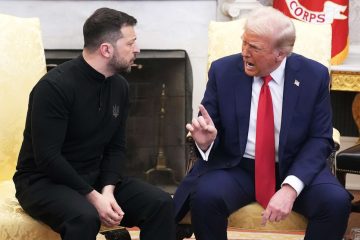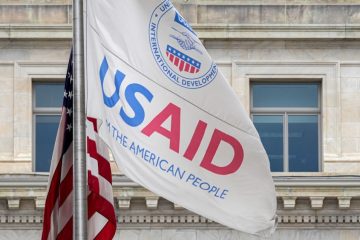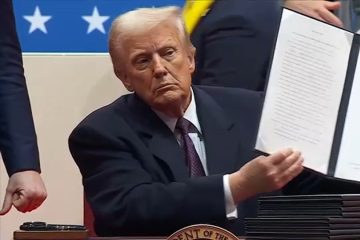How Biden’s close associates attempted to hide aging

For over a year, senior White House advisers have been carefully orchestrating President Biden’s schedule, movements, and personal interactions. Their goal has been to downplay any indications of the toll that age has taken on the oldest president in U.S. history.
Biden’s daily itinerary has been carefully managed by the White House, ensuring that he is shielded from impromptu exchanges. Advisers have limited news conferences and media appearances, declining Super Bowl halftime interviews on two occasions—an effective method to reach a wide audience—and ensured that meetings with donors remained focused on pre-planned topics.
Senior aides disregarded travel suggestions due to concerns about the president’s endurance, including a proposal for Biden to embark on weekly cross-country trips in 2022 to promote the advantages of his infrastructure law.
As Biden’s slips became more apparent, his top advisers were assuring everyone that the president was in good shape.
When the 81-year-old president appeared on stage during last month’s debate, his disappointing performance in the 90-minute event surprised members of his party, including some White House staffers who rarely have personal interactions with Biden.
Now, numerous donors and lawmakers express a sense of being deceived by what they perceive as an attempt to downplay pre-debate concerns about Biden’s suitability for a second term. Several prominent Democrats expressed concern about the lack of party members willing to directly advise Biden to consider stepping down.
News reports regarding the president’s mental acuity have sparked responses from the White House and denials from Biden’s allies. The offices of Sen. Patty Murray (D., Wash.) and Rep. Gregory Meeks (D., N.Y.) informed the White House earlier this year after The Wall Street Journal raised inquiries about Biden’s performance during a January meeting. The president’s speech was characterized by a calm and deliberate delivery. He took frequent pauses, referred to his notes to emphasize key points, and occasionally closed his eyes, as reported by the Journal.
In April, Murray, the esteemed senator from Washington state, mentioned to the Journal that she hadn’t observed any alteration in Biden’s mental sharpness throughout their years of meetings. She mentioned that he interacts in a highly individualized manner, posing inquiries and offering remarks.
On Monday, Murray stated that Biden should take into account his legacy when deciding whether to continue in the race. Murray emphasized the need for a more assertive and dynamic candidate on the campaign trail in the near future, in order to persuade voters of his capability for the job.
Biden’s team perceives a hostile environment in Washington, which has resulted in a mindset of opposition. Some Democrats believe that this mentality has caused the president and his aides to overlook Biden’s political vulnerabilities.
In an ABC News interview on Friday, Biden dismissed questions about his ability to handle the job and stated that he would only step aside if a higher power requested it. He has also downplayed the resistance within his party to his continued candidacy. On Monday, he disregarded the opposition from certain members of the party whom he referred to as “elites.”
According to those familiar with the situation, some individuals close to Biden attribute the president’s age-related challenges to a select group of advisers who implemented a strategy that downplayed these issues. Among the president’s advisors are individuals who possess a broad perspective on matters, such as Anita Dunn, who oversees the White House’s communication strategy and shares the president’s skepticism towards the news media. Additionally, there are Steve Ricchetti and Mike Donilon, experienced political advisors who have been serving for many years.
Outside the White House, Biden’s supporters also highlighted the roles of Annie Tomasini and Anthony Bernal, trusted advisors to President Biden and First Lady Jill Biden, who have played a crucial role in managing access to the president. The White House did not provide any comments from Tomasini, Bernal, Dunn, Ricchetti, or Donilon.
This account is derived from interviews conducted with over two dozen current and former Biden administration officials, Democratic lawmakers, major campaign donors, and Democratic strategists, in addition to a thorough analysis of visitor logs by the Wall Street Journal.
“Joe Biden takes pride in the team he leads as he builds upon a highly successful record in recent American history,” stated White House spokesman Andrew Bates. He refuted the claim that Biden has been isolated from the public and that his staff acts as gatekeepers. Bates highlighted that many of the actions taken by the president’s team are typical procedures followed by previous administrations. According to him, the president has engaged in media interviews, addressed reporters’ questions, and traveled extensively within the United States.”
According to a White House official, Tomasini, Biden’s deputy chief of staff, has a wide range of responsibilities that extend beyond just assisting the president. Bates commented on Biden and Dunn’s mutual dislike for the news media, stating that they only feel that way about certain press outlets.
Several wealthy donors have expressed their dissatisfaction with Hollywood mogul Jeffrey Katzenberg, who is a co-chair of the Biden campaign. During lunches in Los Angeles before the debate, Katzenberg, who provided advice to the president on leveraging his age, advocated for Biden. According to individuals who spoke with Katzenberg, he claimed to have regular interactions with the president and described Biden as astute and in control. Katzenberg has had a longstanding relationship with Biden that spans several decades.
Biden has had numerous instances in the public spotlight. He received widespread acclaim for his State of the Union address in March, in which he presented a compelling argument that the freedom of Americans was in jeopardy during the November election. In January, he visited Blue Bell, Penn., which is close to the historic site of Valley Forge where George Washington rallied troops. During his speech, he discussed the significant implications of the election, and his address was warmly received. He has embarked on numerous notable journeys, such as an unexpected visit to Kyiv last year and a trip to Israel shortly after the Hamas attack.
Based on accounts from those who have observed the president’s public appearances and private interactions, it appears that Biden exhibits instances of being focused and attentive to details. On occasion, he experiences lapses in memory, has difficulty articulating himself, and finds it challenging to express his ideas. According to individuals who have had the opportunity to meet with the president, these types of mistakes have been occurring more frequently, often gaining significant attention on social media.
According to individuals who recently reunited with the president after a period of separation, they were taken aback by his noticeable decrease in pace. Last summer, a former high-ranking Biden adviser expressed dissatisfaction with a meeting they had with the president, noting that it did not go well. Additionally, they observed that Biden appeared to have aged significantly since their previous encounter.
Some supporters of Biden were deeply disappointed by the president’s poor debate performance, which made them reconsider their previous interactions with him. The Atlanta debate also prompted others to connect their lingering concerns about Biden’s mental sharpness.
Lawmakers from both parties have expressed their concerns about the limited opportunities to meet with the president. It took almost a week for President Biden to reach out to Senate Majority Leader Chuck Schumer (D., N.Y.) after the debate. According to a White House official, the president has had discussions with at least 20 lawmakers since the debate. However, when Republican House leaders requested a meeting with the president, Biden’s team offered conversations with senior White House aides instead.
According to visitor logs, Biden’s frequency of small meetings with lawmakers has decreased over the course of his term.
In an effort to accommodate President Biden’s fatigue at night, German officials have made arrangements to plan an event with German Chancellor Olaf Scholz in June 2022, scheduled for the early evening.
During the Group of Seven summit, a casual gathering took place at the Alpine resort Schloss Elmau. The purpose of this informal event was to hold a confidential discussion on Ukraine in a laid-back atmosphere. To the surprise of the chancellor and his aides, President Biden did not attend. Instead, Secretary of State Antony Blinken made an appearance and informed everyone that Biden had retired for the night, as relayed by two eyewitnesses.
Matthew Miller, a State Department spokesman, refuted any claims that Blinken suggested Biden needed to go to bed. “Secretary Blinken never made such a statement or anything similar,” he clarified.
According to a U.S. official, it was made clear by the White House from the beginning that Biden would not be in attendance. The official disagreed with the portrayal that Blinken was acting as a substitute for the president. According to a White House official, Biden effectively managed his time during the summit by juggling discussions with world leaders and attending to important matters back home. The day concluded at 10 p.m. with a productive hour-long call with his team to address domestic issues.
According to those in attendance, Biden displayed no indications of cognitive decline during the summit’s working hours. However, according to their observations, he seemed to be increasingly fatigued as time went on. U.S. aides informed officials at the summit that the absence of air conditioning was the cause, as per the individuals involved. However, the State Department disagreed with this claim.
Prior to the Democratic primaries, certain donors raised concerns with Katzenberg regarding Biden’s suitability as the nominee, considering his advanced age. Katzenberg informed them that Biden was the party’s strongest candidate to defeat Donald Trump.
During a recent lunch, an entertainment executive inquired about Biden’s ability to win the election, questioning whether he was too incapacitated. Sorry, but the answer is no. “No way,” the executive remembered Katzenberg saying. “I interact with him frequently and he’s reliable. His mental sharpness is intact.”
Katzenberg attended numerous meetings at the White House between March 2023 and March 2024, as indicated by visitor logs.
During certain fundraising events, the campaign occasionally offers limited opportunities for spontaneous interactions with the president, including for top donors. The campaign has consistently encouraged donors to submit their questions for the president ahead of time, even at a recent event in South Florida that had a small attendance of only eight people, as reported by a donor. The donor noted that Biden spoke at a measured pace and occasionally had difficulty finding the right words, but overall, he provided thorough and comprehensive responses. According to the donor, the president appeared to have declined slightly, although there were no signs of impairment.
Occasionally, aides provided assistance. During a fundraiser in New York coinciding with the United Nations General Assembly last autumn, Biden appeared unsure when faced with questions about the Middle East from individuals in a photo line, as reported by an eyewitness. A discreet whisper from an aide prompted the president to respond accordingly.
At a fundraiser held at the Four Seasons in New York in June 2023, Biden delivered a brief speech and engaged in a Q&A session with attendees. Some of those present noted his apparent vulnerability during the event. There was a moment when Biden struggled to recall the term “veteran” and he sought assistance from the audience to describe someone who had served in the Army or Navy.
When questioned about these events, Kevin Munoz, a spokesperson for the Biden campaign, expressed his disapproval of journalists who relied on unnamed sources to describe the president’s private interactions. “None of them alter the facts at play in this election and the central focus of this campaign every single day: President Biden is the most accomplished president in modern history,” he stated.
Prominent Democratic lawmakers also came to the president’s defense regarding his mental acuity. In an interview in April, Rep. Nancy Pelosi (D., Calif.), the former House Speaker, shared an anecdote about reassuring a concerned celebrity who had reached out to her with questions about Joe Biden. Pelosi recounted how she highlighted Biden’s impressive performance at a recent fundraiser in San Francisco. “He delivered an impressive speech without any notes,” she recounted to the celebrity. According to her, Biden effortlessly remembered everyone, without the need for nametags.
According to her spokesman, Pelosi expressed complete confidence in Biden on Monday.
According to a Los Angeles-based longtime Democratic donor, certain contributors chose to remain silent about their concerns in order to safeguard their access and influence. The fear of jeopardizing opportunities such as becoming an ambassador or hosting a fundraiser was a significant factor.
During his time as a senator, Biden frequently engaged in conversations with reporters in the hallways of the Capitol. As vice president, he extended invitations to journalists for pool parties at his residence. At the beginning of his presidency, Biden displayed a more spontaneous speaking style, even during fundraisers.
In recent times, Biden’s public appearances have become quite concise. Every now and then, he addresses questions from reporters, but his replies are usually brief, often limited to a simple “yes,” “no,” or a thumbs-up gesture. Since the debate, his public speeches have typically lasted less than 10 minutes. In response to feedback from Democrats, his campaign has scheduled more spontaneous engagements with voters.
According to an analysis by presidential scholar Martha Joynt Kumar, Biden has conducted fewer news conferences and interviews at this stage of his term compared to previous presidents, including Ronald Reagan.
The White House frequently sets up barriers to prevent reporters from posing questions to President Biden. Journalists are occasionally kept at a considerable distance, sometimes spanning dozens or even hundreds of feet, from the president during events. Additionally, White House staff often play music loudly to ensure that questions cannot be heard when the president departs.
Radio hosts who interviewed the president last week, as part of an effort to address concerns about Biden’s mental fitness, mentioned that they received a list of pre-approved questions from the Biden campaign. Following the report, the campaign decided to limit this practice, as confirmed by a source familiar with the Biden booking operation.
During Biden’s infrequent news conferences, White House officials frequently contact reporters who may be called upon by the president, in an effort to find out their planned questions. However, many reporters decline these requests. Additionally, White House aides often assist reporters by holding the microphone, occasionally pulling it away to avoid follow-up questions.
In June 2023, during an appearance at a graduation ceremony for the U.S. Air Force Academy, Biden had a minor mishap as he walked across the stage. With the assistance of Secret Service agents, he quickly regained his footing. The incident garnered significant media attention and caused some concern at the White House, according to sources familiar with the situation.
Officials downplayed the incident as a routine accident, but were well aware of the negative political implications of Biden’s fall. In the subsequent months, they implemented additional measures to prevent any future mishaps. Biden began opting for sneakers to improve his grip and frequently chose shorter stairs when boarding Air Force One.
During a meeting with Democratic governors last week, the president emphasized the importance of getting sufficient sleep and hinted at the idea of avoiding events that start after 8 p.m.
According to a person briefed on the discussion, some governors were skeptical of that comment. However, others were relieved that Biden recognized the existence of a problem.
This article was contributed by Siobhan Hughes, Bojan Pancevski, and Robbie Whelan.










